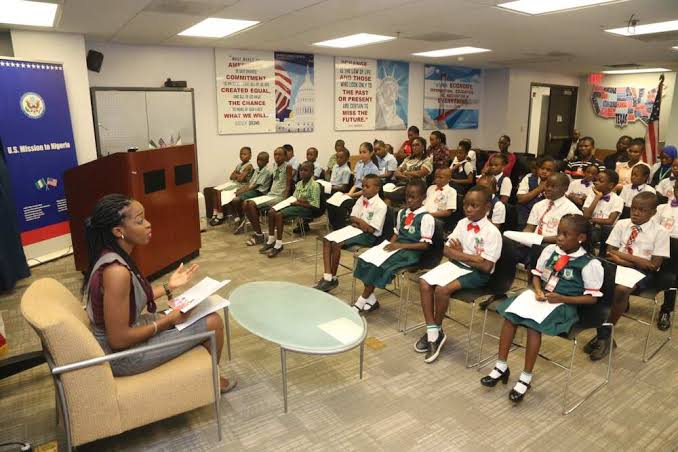The Nigerian education system is vast and multifaceted entity that has undergone numerous reforms. It has experienced transformations since country gained independence in 1960. It plays crucial role in shaping the nation's socio-economic development. It provides foundation for intellectual and professional growth of its citizens. Understanding the structure and curriculum of Nigerian education system is essential. This insight is necessary for grasping how education is delivered. Comprehending the challenges it faces and potential areas for improvement is equally important.
The Nigerian education system is structured into several distinct levels: early childhood education primary education, secondary education and tertiary education. This structure designed to ensure comprehensive and progressive educational experience. For students from early childhood through adulthood.
Early childhood education in Nigeria also known as pre-primary education caters to children aged 3 to 5 years. This stage is not mandatory. It is highly encouraged as it lays groundwork for formal education. Early childhood education focuses on developing basic literacy and numeracy skills. Social interaction and emotional development. It is offered by mix of public and private institutions with varying degrees of quality and accessibility.
Primary education in Nigeria is compulsory. Spans six years typically for children aged 6 to 11. This level of education is designed to provide students with solid foundation in basic academic skills and knowledge. Primary education curriculum includes subjects such as Mathematics, English Language Nigerian Languages, Basic Science and Technology. Social Studies Cultural and Creative Arts and Physical and Health Education are also part of it. Aim is to equip students with essential skills for further education and everyday life
Secondary Education
Secondary education in Nigeria is divided into two stages: Junior Secondary School (JSS) and Senior Secondary School (SSS). Junior Secondary School covers three years (JSS1 to JSS3), for students aged 12 to 14. This stage continues the general education started in primary school and introduces more specialized subjects. At the end of JSS3, students take the Basic Education Certificate Examination (BECE), which determines their progression to Senior Secondary School.
Senior Secondary School also lasts for three years (SSS1 to SSS3), typically for students aged 15 to 17. This stage is more specialized, with students choosing from three main streams: Science, Arts, and Commercial. The curriculum includes core subjects like Mathematics and English, along with electives based on the chosen stream. At the end of SSS3, students sit for the West African Senior School Certificate Examination (WASSCE) and the National Examination Council (NECO) exams, which are critical for admission into tertiary institutions.
Tertiary Education
Tertiary education in Nigeria includes universities, polytechnics, colleges of education, and other specialized institutions. Nigerian universities offer undergraduate and postgraduate programs, awarding degrees such as Bachelor’s, Master’s, and Doctorate degrees. Polytechnics provide technical and vocational education, offering National Diplomas (ND) and Higher National Diplomas (HND). Colleges of education focus on training teachers for primary and secondary schools, awarding the Nigeria Certificate in Education (NCE). Admission to these institutions is highly competitive and often requires passing the Unified Tertiary Matriculation Examination (UTME) conducted by the Joint Admissions and Matriculation Board (JAMB).
Curriculum of the Nigerian Education System
The curriculum of the Nigerian education system is designed to be broad and inclusive, catering to the diverse needs of students at different educational levels. It aims to promote intellectual development, practical skills, and moral values.
Primary Education Curriculum
The primary education curriculum is structured to provide a well-rounded education that covers a wide range of subjects. The core subjects include:
- Mathematics: Focuses on basic arithmetic, geometry, and problem-solving skills.
- English Language: Emphasizes reading, writing, comprehension, and communication skills.
- Nigerian Languages: Encourages proficiency in indigenous languages to preserve cultural heritage.
- Basic Science and Technology: Introduces scientific concepts and technological literacy.
- Social Studies: Covers Nigerian history, geography, government, and social values.
- Cultural and Creative Arts: Fosters creativity and appreciation for Nigerian culture and arts.
- Physical and Health Education: Promotes physical fitness, health awareness, and personal hygiene.
Secondary Education Curriculum
At the Junior Secondary School level, the curriculum continues to build on the primary education foundation, with subjects such as:
- Mathematics: Advanced arithmetic, algebra, and geometry.
- English Language: Enhanced literacy and communication skills.
- Basic Science: Introduction to physics, chemistry, and biology.
- Social Studies: In-depth study of Nigerian and global issues.
- Technology and Business Studies: Basic vocational and entrepreneurial skills.
- Creative Arts and Physical Education: Continued emphasis on creativity and physical health.
At the Senior Secondary School level, students choose their specialization streams, and the curriculum includes:
- Science Stream: Subjects like Physics, Chemistry, Biology, and Further Mathematics.
- Arts Stream: Subjects like Literature, History, Government, and Geography.
- Commercial Stream: Subjects like Accounting, Commerce, Economics, and Business Studies.
Tertiary Education Curriculum
The curriculum at the tertiary level varies widely depending on the institution and the program of study. Universities offer a diverse range of courses across various disciplines, including the sciences, humanities, social sciences, engineering, medicine, and law. Polytechnics and colleges of education have more focused curricula, emphasizing technical and vocational skills, and teacher education respectively.
Conclusion
The Nigerian education system is a complex and evolving entity designed to cater to the educational needs of its diverse population. While significant progress has been made in expanding access to education and improving the curriculum, numerous challenges remain, particularly in ensuring equitable access and quality across all regions. By understanding the structure and curriculum of the Nigerian education system, stakeholders can better identify areas for improvement and implement strategies to enhance educational outcomes. Ultimately, a robust and inclusive education system is crucial for Nigeria's socio-economic development and the well-being of its citizens.
